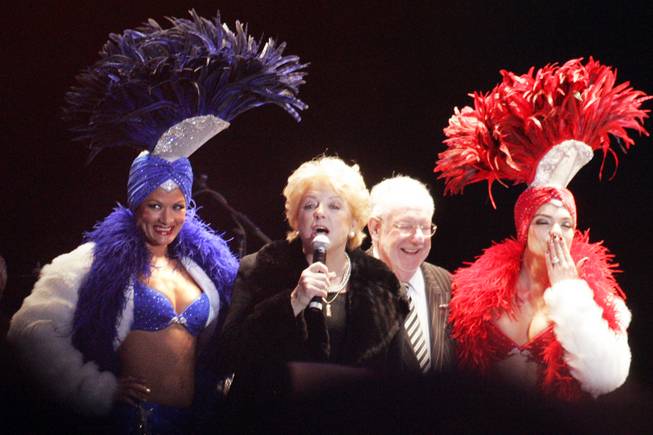
Mayor Carolyn Goodman and her husband, Oscar Goodman, count down to the new year during TributePalooza at the Fremont Street Experience in downtown Las Vegas on New Year’s Eve Saturday, Dec. 31, 2011.
Sunday, Jan. 1, 2012 | 2 a.m.
There was a time when experts thought Nevada would be well on the road to recovery by 2012. But we're not.
There is strong consensus, though, that we're turning the corner. Yes, we've heard that before, too, but this time there is greater confidence. The important numbers are trending well.
Here are forecasts by 10 economists and business leaders, speaking about what they know best.
Kristin McMillan, CEO of Las Vegas Chamber of Commerce
At the chamber, we think there is a more promising outlook ahead for 2012.
Last year at this time, our unemployment was over 15 percent; that was the highest rate in decades, and just the other day we heard it was down to 12.5 percent, which is a positive.
Our growth in goods and services is up, wages and salaries are up, and our tourism indicators have been on the rise for 20 straight months.
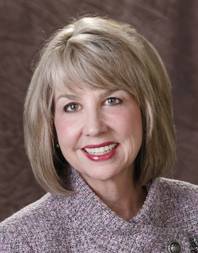
Kristin McMillan
We’ve heard from members that sales are on an upward swing, and there’s some confidence 2012 will be a better year for business. At the very least, things have stabilized.
But there’s still a lot to be done. In 2012, we need to step up our efforts to diversify our economy. We have relied on consumptive industries to support our economy, and that’s simply not going to be enough to sustain ourselves going forward.
If we are going to grow, we need to step up our efforts to diversify our economy and improve our workforce skills.
What’s needed is a strategic, concerted effort for diversification. We already have some momentum going, and we have a good picture of our economic challenges.
We think progress will come in small bites, but we need to start with a bottom-up plan …
I think what we are going to see in 2012 is the development of a plan that really focuses on industry clusters and identifies how we can build around those clusters, how we can align ourselves better with higher education to develop the work skills necessary to really enable us to attract businesses and to develop businesses.
— Conor Shine
• • •
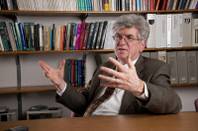
"The primary driver of the Las Vegas economy, which is tourism, is in recovery," says Stephen Brown, director of UNLV's Center for Business and Economic Research.
Stephen Brown, economics professor and director of the Center for Business and Economic Research at UNLV
I think we’re pretty much at bottom as far as construction is concerned. I’m looking for a little growth there in 2012 but not a lot, probably a little more on the commercial side than the residential side.
The problem is we really have a big overhang of residential and commercial space, and it could take awhile to work through. I think we’re going to see depressed housing prices for a while. Eventually the market will be under-built and prices will rise again. It really depends upon how soon the population begins growing. We have a lot of housing to absorb in Las Vegas.
Tourism is back up to where it was in 2007, but the tourists are coming from farther away. They’re not coming as much from California. They’re staying a little longer, hotel room rates are up but not up to 2007 levels, they’re not doing as much gaming.
We’re actually seeing a decent recovery in tourism, and I expect that to continue in 2012. It’s going to be a little different tourist than we saw in 2007. It’s going to be like the tourists we saw in the 1990s. They just didn’t come with as much money to spend. We’re not going to see a return to 2006 and 2007 because it was based on expansive monetary policies and financial innovation gone wrong.
We’ve been down so long and so far that even a weak recovery doesn’t look great by historical standards for Las Vegas, but I expect this coming year the economy to be stronger.
I expect continuing gains in visitor volume, gaming, which will grow at a faster rate in 2012 because the economy is a little stronger. I think our unemployment rate will remain high. The economy is creating jobs, just not very fast. One of the big concerns with that is you have a lot of people who have dropped out of the labor force. It’s going to be a long time before those people are put back to work.
Overall, I would say I’m optimistic about the coming year, but other people might view my optimism as continuing pessimism because it’s not the strong growth that Las Vegas was used to.
— Dave Berns
• • •
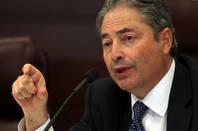
Economic Forum Chairman John Restrepo speaks during a hearing Monday, May 2, 2011, at the Legislature in Carson City.
John Restrepo, a principal at RCG Economics LLC in Las Vegas
The essential challenge facing us in 2012 will be weak demand, especially by consumers, because of high and prolonged structural unemployment. The housing market collapse continues to restrain the national economic recovery, which continues to impede Southern Nevada’s recovery. Unfortunately, the recovery of the housing market will be a long, brutish process.
The tourism metrics and indicators are certainly starting to improve moderately, which is very good news for Southern Nevada. That said, I think it is unlikely that the resort industry, which we depended on so much in the past, will lead the region in a “V” style recovery.
The Great Recession showed the vulnerability of Las Vegas’ discretionary spending-based economy. This recession is forcing structural changes to our economy that are not fully understood yet. We have to recognize the fact that there will not be a hiring binge by the resort industry, or any of the other sectors of our economy for that matter.
This will have a material affect on the rate of job growth, which means that the unemployment rate won’t be returning to its pre-recession trend rate of 5-6 percent for several years. You also have to combine this with the long-term changes in the business community regarding doing more with fewer employees. So, we don’t anticipate any major upswing in property values in the valley. There is just way too much excess capacity in the valley’s economy and its real estate markets, that we don’t forecast a V recovery.
The word on the street is that banks will remain risk averse, especially when it comes to small-business lending. Large-business lending, especially for publicly traded companies, is on the rebound. But it’s the health of the small-business community that is so critical to Southern Nevada’s economic and job market recoveries.
Again, the core problem is weak demand for the goods and services. This has especially hurt small businesses, and lenders are hesitant to do significant lending in such an environment.
— Steve Green
• • •
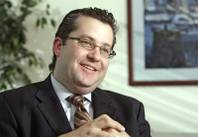
Brian Gordon, principal of Applied Analysis, is shown at the firm's offices.
Brian Gordon, partner and principal analyst at Applied Analysis
There’s no doubt that in 2012 the local economy will remain fragile and well below peak performances in 2006 and 2007. At the same time you have a number of people going through the foreclosure process, a number of people facing bankruptcy, which potentially frees disposable incomes. Those who have been struggling to maintain their credit profile or mortgage payments may be getting out from under that debt burden, which provides them with an improved balanced sheet and has the potential to translate into increased consumer spending.
Construction- and government-employment have continued to struggle in the post-recession environment, and they’re likely to remain weak in 2012, so those sectors will offset some of the bright spots that will emerge in 2012. Government employment will continue to lag the cycles that we are seeing in other sectors of the economy. And on the construction side there just aren’t any significant development projects in the pipeline.
— Dave Berns
• • •
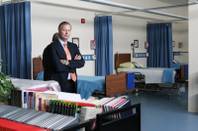
Steve Hill, seen here when he was chairman of the Las Vegas Chamber of Commerce's Policy Task Force, studies the textbooks in the Respiratory Therapy center while touring the Health and Science building on the campus of Southwest Career & Technical Academy.
Steve Hill, director of the Governor’s Office of Economic Development and a former chairman of the Las Vegas Chamber of Commerce
There ought to be a very coordinated effort toward economic development in the state.
We’re going to appoint regional development authorities. We want to look for the best regional development authority in a region and get everyone behind it.
Everybody should know their role. There will be greater responsibility and a better mechanism for accountability.
For the first half of the year, the Nevada Development Authority will continue to be funded and will continue to perform its role.
We’ll start to target economic development efforts on certain sectors and match education and workforce training resources with those sectors so we can better capitalize on opportunities.
We’re not really thinking about this economic development effort in terms of a year. We’re looking out at three- and five-year horizons.
We would hope in 2012 we’ll make a difference in the number of jobs available in Nevada.
— David McGrath Schwartz
• • •
Randy Fine, casino marketer-turned-industry consultant and founder of the Fine Point Group in Las Vegas
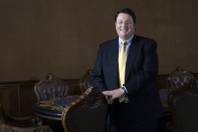
Randall A. Fine, managing director of the Fine Point Group, during an interview at One Queensridge Place on Jan. 29.
The one thing we would guarantee, despite the supposed claims of the Mayans, is that the world isn’t going to end.
In 2012, we believe some things will get better, and some won’t. On the positive side, we will see continued incremental gains in Strip visitation and spending. But we must caution — while single-digit growth beats the alternative, we will need many years of consistent growth to return to the peaks of 2007. Happy days aren’t here again, yet. We have a long road ahead.
On the negative side, we don’t foresee meaningful improvement in our local economy. Local casino demand from 2003 to 2007 was driven by a boomtown mentality fueled by a false belief in wealth through housing appreciation. It never made sense, and it has left a large percentage of our friends and neighbors in personal financial crisis. Until that works itself through, anemia will be the order of the day.
There is an obvious solution to improve our local economy, and if I could wish for one thing in 2012, it would be for state, local, and private industry to focus on luring tax- and regulation-saturated Californian companies to Las Vegas. We have great air service for business travel, cheap housing, huge tax advantages and the best entertainment and restaurants in the world. Zappos is a great start, but we need to get them some company.
— Delen Goldberg
• • •
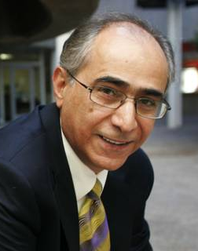
Nasser Daneshvary
Nasser Daneshvary, a UNLV economics professor and director of Lied Institute for Real Estate
Europe is unpredictable. I don’t know how that will play out. It will impact financial institutions globally, the banks.
The debt that Italy and other European nations hold has been purchased by everybody around the world, and it could potentially start pushing the interest rates up for credit cards and other forms of outstanding debt. That would cut into consumer and tourism spending. It could also put inflationary pressure on anything that we buy, and that could create inflationary pressures for consumers.
Spending on luxury items nonessentials could further decline. Right now we don’t know what this could all mean. It takes years to see the data to determine what happened when we look back in time. Right now we’re still analyzing Depression data.
I don’t think the U.S. economy will be stabilized until the after the 2012 presidential election. We elected Obama and pushed economic policy in one direction. We elected Tea Party people in 2010, and they pushed our economic policy in another direction.
This dynamic has contributed to the gridlock in Washington, D.C. For example, look at the debate over payroll tax breaks. Imagine that the deductions in the payroll tax expire, and you bring your paycheck home and it’s $100 less a month. That immediately effects your spending and hurts the local economy.
— Dave Berns
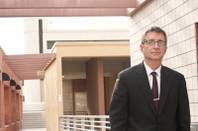
Paul Jarley is the dean of the Lee Business School at UNLV.
Paul Jarley, Dean of the Lee Business School at UNLV
Prediction is risky business. Case in point: The College of Business started 2011 in such a dire budget situation that several professors decided to take tenure buyouts and leave UNLV. By year’s end, the Lee Business School was meeting with Ted and Doris Lee to discuss how we can best use our new resources to gain national prominence. A tumultuous year makes you apprehensive and grateful at the same time.
What will 2012 hold? The nation and Las Vegas are in a slow climb back to prosperity. Financial crises leave long recessions in their wake. I fear that news of booming holiday sales and falling unemployment rates are frugal early bargain hunters and discouraged workers in disguise. Things are getting better, but recession fatigue will not fuel economic recovery. Real productivity increases and growing confidence are required, and those remain modest. And while I support the drive to diversify our economy, this effort will prove more valuable in weathering the next economic downturn than helping Las Vegas get out of this one.
Economies recover, but they rarely come back. The vibrant econowmy of 2014 will differ from the one that left us. Real estate agents are giving way to home stagers, travel agents to data miners, medical records clerks to health informatics technicians, and so on.
Position yourself to share in the next boom by upgrading your skills, gaining experience in an emerging area, building your peer network, or starting a company that meets consumers’ changing needs. 2012 can be a bridge to a much better future.
— Ric Anderson
• • •
Chris Powell, president and general manager of Las Vegas Motor Speedway
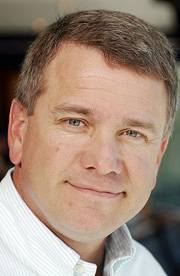
Chris Powell
We have been buoyed at this speedway by a couple of things. One is a bit of positive momentum that has begun in the NASCAR world. TV ratings and ticket sales were up a little bit in 2011, especially in the back half of 2011, so we’re optimistic that 2012 will be better than 2011 was.
Our NASCAR weekend is in March. Our ticket sales are up, not significantly but they’re not down. So that’s a positive.
And then almost as impactful as the NASCAR industry is something we call here nontraditional revenue. That is track rental business that we see growing — events like the Electric Daisy Carnival, which drew more than 230,000 people over the course of three nights and provided a tremendous boost to our economy in June.
We also have an uptick in the track rental business on the automotive industry side. For instance we had a big event here that Volkswagen did in 2011. They brought in dealers from across the world to introduce a new line.
So we have seen a bottoming out in our business. We’ve seen some bounce-back.
We’re not back where we were in 2006 and ’07, but we’re not worse than we were in 2008 and 2010. In fact, we’re better than we were then.
I’d like to believe maybe the period of uncertainty has gone on for so long that maybe people are less uncertain in their spending. Maybe they feel a little bit more comfortable in spending the dollars that they were spending in the mid-2000s. They feel like, if they were able to keep their jobs during this downturn, they’re fairly safe now.
I don’t know if we’re in for a breakthrough in 2012. I’d like to believe I have a long time to go until I retire, but I don’t know that I’ll ever see things get back to where they were. But I do feel better about things today than I did a year ago based on what we’re seeing here at our speedway.
— Ric Anderson
• • •
Jeffrey Rugg, attorney, Brownstein Hyatt Farber Schreck
I fully expect to see continued litigation and bankruptcies in the field of commercial real estate during 2012.
As interest rates and commercial rents remain low, commercial property owners are acting strategically to avoid loan obligations at higher interest rates and the personal guaranties tied to those loan obligations. Often this strategic action takes the form of using (and at times misusing) litigation and bankruptcy to burden and challenge their current lenders
On the other hand, lenders and special servicers have to consider how best to recover on existing loans and maximize the number of performing loans in their portfolios.
Often, the only option is aggressive litigation against borrowers and guarantors both to recover on that specific loan and to discourage other borrowers from defaulting. The addition of the uncertainty created by AB 273 (which limits deficiency judgments in foreclosures by basing them on what investors in distressed debt purchased the debt for, not its face value) and the challenges to that statute pending before the Nevada Supreme Court may cause lenders to delay litigation, but it is unlikely to end the trend.
— Steve Green

Join the Discussion:
Check this out for a full explanation of our conversion to the LiveFyre commenting system and instructions on how to sign up for an account.
Full comments policy